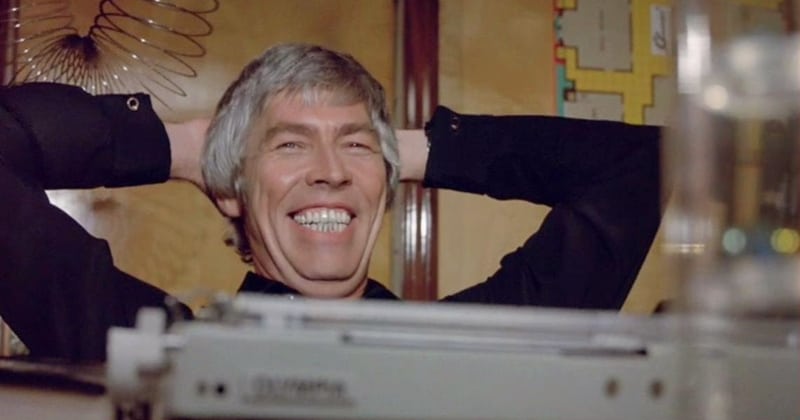#Paul Brandus: America gets a wakeup call as Putin menaces Europe

Table of Contents
“#Paul Brandus: America gets a wakeup call as Putin menaces Europe”
What is our role in the world, and can we stand as a united nation?
For weeks, Russia scoffed at American intelligence estimates that an invasion of Ukraine was imminent. Such an invasion could come at any moment, President Biden warned us.
Now that it has — one of those “gray swans” I warned of at the beginning of the year — we must consider what may happen next.
No, Putin said, the greatest catastrophe was the peaceful dissolution of the Soviet empire, which gave tens of millions their first exposure to true freedom, the market economy, the right to speak openly and all the rest. That, he thinks, is the real tragedy.
The mindset of this once and forever KGB man is that the Soviet empire must somehow be restored. Prior to invading Ukraine, he sent, just weeks ago, troops into another former Soviet republic — Kazakhstan — to help thwart “outside interference.” He grabbed part of another of the former USSR — Georgia — in 2008.
We must now focus on the tiny, vulnerable Baltic countries of Estonia, Latvia and Lithuania. Stalin grabbed them in 1940 and forced them to become part of the Soviet Union. They broke away in 1991, and are now NATO countries, meaning the United States is obligated to defend them if attacked. Putin eyes the Baltics as a ravenous wolf might a newborn lamb. America and its NATO allies must further reinforce the Baltics immediately.
Americans must understand that our 30-year holiday from history, which began with the Soviet collapse, is over. Defense spending must rise. During the Cold War, we spent, on average, about 7% of GDP on defense. After 1991, both George H.W. Bush and Bill Clinton began cutting spending, and by the end of the Clinton era fell as low as 2.9% of GDP.
This “peace dividend” came to an end with the terror attacks of Sept. 11, 2001. But even then, the twin wars in Afghanistan and Iraq — the latter of which showed that the United States is not immune to its own geostrategic blunders — took defense spending back to 4% or so by 2008. This fiscal year, the Pentagon has been given $715 billion, or 3% of GDP.
Liberals will complain about higher defense spending. Let them. There are legitimate questions about U.S. naval readiness, and the size of the fleet itself. The average American replaces their car every six years, according to Autotrader. But many of the warplanes our military flies are decades old. The B-52 bomber, for example, while upgraded with modern technology, is still an aircraft that first took to the skies during the Kennedy era. We have underinvested in defense too long, and in too many areas.
It is also believed that the United States has no proven defense today against high-tech Russian weapons such as hypersonic missiles. China also has hypersonic missiles, and both Moscow and Beijing have robust cyber weapons and have not been shy about using them. Both of these adversaries also see space as a prime battleground, and a war against America could very well begin by blinding the satellites that are indispensable to our modern economy.
To be sure, our NATO allies must also do more. Every recent president — not just Donald Trump — has complained about insufficient defense spending on the continent, notably by Germany. The irony here — and adding to Putin’s folly — is that the Germans, who invaded the Soviet Union in 1941, have begun to up their military spending and are now likely to accelerate it. There’s nothing more incentivizing to higher spending than the Russian bear on the prowl, and Germany, a wealthy country, can easily afford it. The Germans should also abandon post-World War II guidelines banning the export of arms.
Speaking of NATO, Putin’s blunder will also backfire in that it is now likely to push Finland — which directly borders on Russia’s strategic northwest — into the alliance, thus bringing western forces closer. Even Sweden — which began moving away from its historically neutral stance in 2009 — could join as well.
Let me end with this. For all his blundering — his invasion of Ukraine is a colossal and massively destabilizing error — Putin’s pre-war calculations included this: He thinks that Americans are divided, and this weakens us.
On this one point, the Kremlin madman is right. We are a badly divided people and it does indeed weaken us. Putin sees advantage in this. Perhaps we Americans should set aside our nasty partisan rancor and think about that in the dark days that surely lie ahead.
By
Paul Brandus
If you liked the article, do not forget to share it with your friends. Follow us on Google News too, click on the star and choose us from your favorites.
For forums sites go to Forum.BuradaBiliyorum.Com
If you want to read more News articles, you can visit our News category.
![#Ex-Jazz player’s return to Utah not so pleasant [Video]](https://s.yimg.com/ny/api/res/1.2/LbVKF6mKUBv6U0w6Jsk0fA--/YXBwaWQ9aGlnaGxhbmRlcjt3PTEyMDA7aD04MDA-/https://media.zenfs.com/en/aol_yahoo_sports_800/bc16b67ca9a84b1f6cd3009265eada87)



